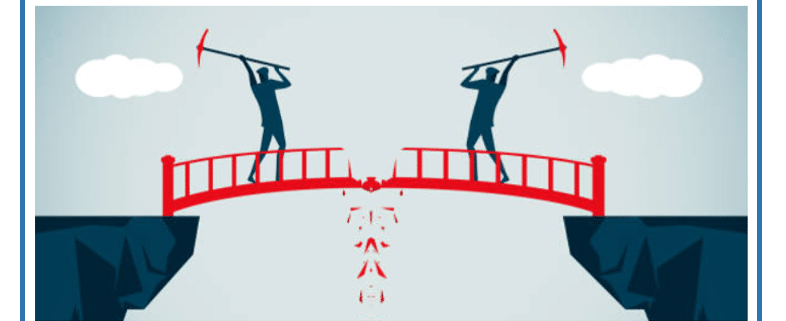This Blog Isn’t My Fault.
It’s Google’s fault. I asked it a simple question and it sent me down a rabbit hole. This is the result.
The words “the center does not hold” recently caught my attention. To better understand their intent, I turned, of course, to Google.
The first reference was to William Butler Yeats’ poem “The Second Coming” written in 1919 in which he says: “Things fall apart; the centre cannot hold. Mere anarchy is loosed upon the world.” Well, that’s a little dark, I said to myself.
Joan Didion refers to the phrase in her book “Slouching Toward Bethlehem.” She says: “when the center disintegrates, we attempt to grasp it, if just for a little longer, seeking personal communication, contact and meaning.” Yes, I certainly get that.
Harry Turtledove, author and war chronicler, wrote that when the center doesn’t hold, we dissolve into “social upheaval, alternate history and cutthroat politics.” I think he’s right.
Julia Reed, journalist and author, adds that when the center doesn’t hold “common sense does not prevail.” Dire words, indeed, from a Southern humorist.
And then there’s Elyn Sak’s book “The Center Cannot Hold” which is a treatise on her dark journey through schizophrenia. Such tough reading, I could barely finish it.
But the reason I had difficulty finishing it had nothing to do with her disease and its evolution. In fact, the author survives and goes on to be accomplished in many areas. It’s a happy ending for her and the reader.
No, the reason I struggled was because the people around her, her doctors, professors, family and friends, never fully saw it coming. They never saw the global storm that threatened to destroy her completely. They prescribed hospital care, too many drugs, obscure programs and piecemeal curatives. They missed the big picture and they almost waited too long.
It begs the question. Can our country’s center hold if we turn our heads and ignore its value, its fragility and meaning? It all feels so tenuous right now. What if we wait too long?



